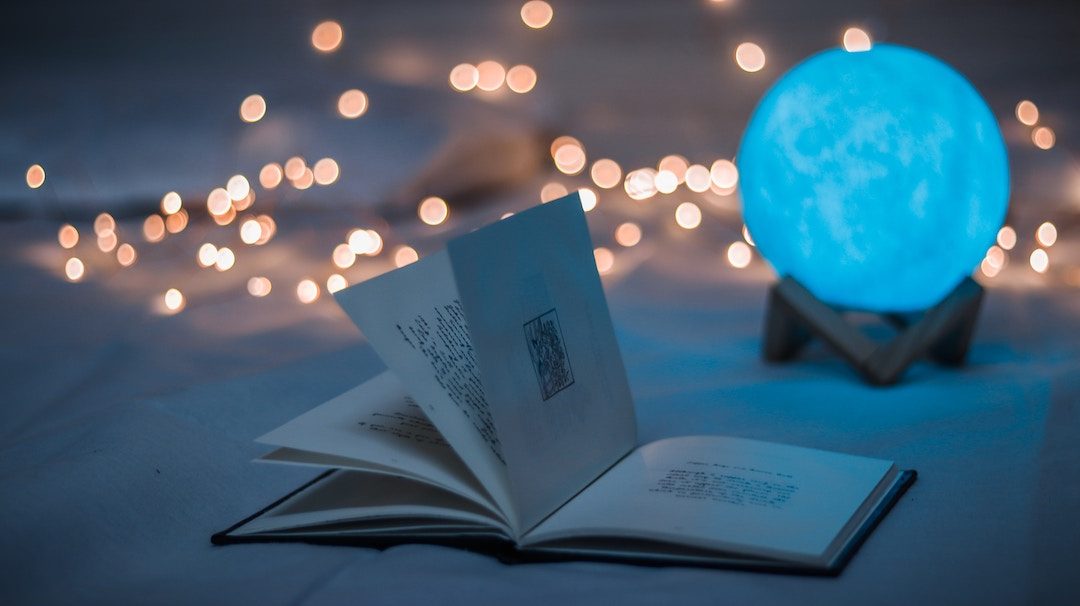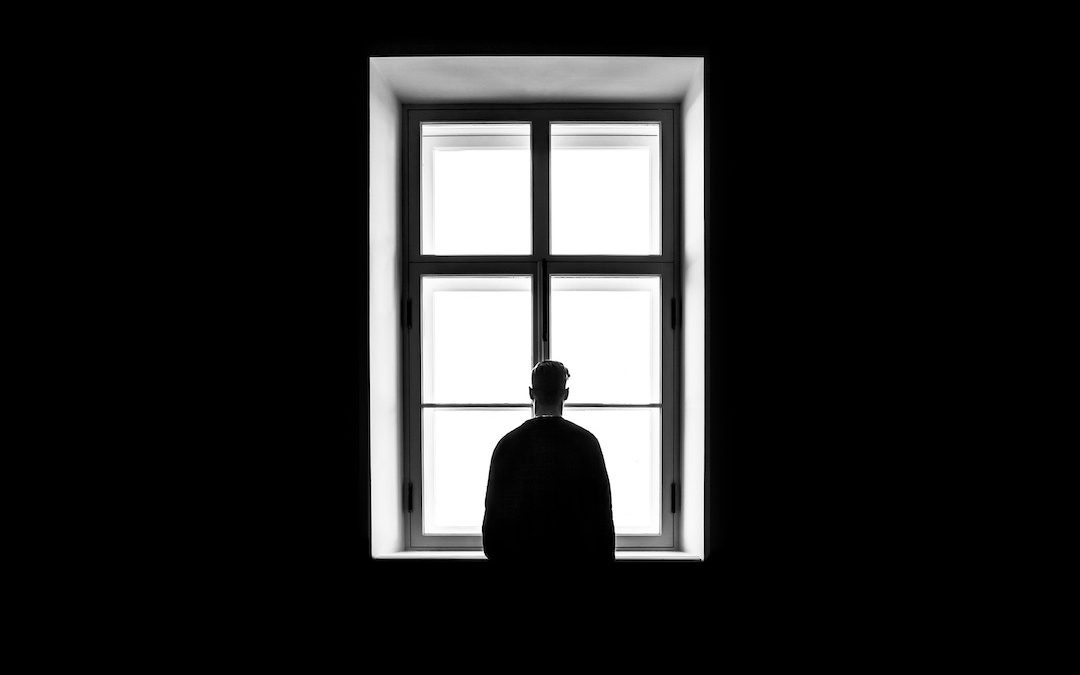
by Rachel Toalson | Wing Chair Musings
I’ve been feeling burned out lately. It’s a carryover from the end of the year, sliding into the new year, though I took two weeks off work to read and spend time with my kids and relax.
It’s not the work that has me so burned out; in fact, work, right now, feels like a necessary respite from the domestic world. It’s everything else—the lunches that need making, the house that needs tidying, the kids who need constant supervision.
I told my husband the other day that I almost feel like I can’t let our kids out of my sight, even though the oldest three are twelve, nine, and eight—ages at which I was already staying home alone. We live in a culture of fear—fear of what will happen to our kids if we take our eyes off them and fear of what will happen to us if other people see that we’ve taken our eyes off them. We’ve all heard the horror stories—parents (usually mothers) arrested for leaving their kid in the car for five minutes while they run into the store for some toilet paper or for letting their kid walk to or play in the park alone or for leaving them home alone while they run to the grocery store for an hour of blissful shopping. We are afraid, and so we protect from real (the repercussions of concerned citizens reporting on our perceived neglect) and imagined (child abduction, which is a percentage so low it would take leaving your kid alone for 750,000 years, according to some experts) dangers. At all hours. Every day.
Because of this, our kids don’t know how to be alone or how to care for themselves. My twelve-year-old didn’t even know how to make a pot of tea, and when, one day, he was feeling a little stuffy, he asked for some. I was busy getting breakfast on the table for his five brothers, so I told him to do it himself. He said, “But I don’t know how.”
Our kids, understandably, have trouble taking care of themselves in our overprotected world, so it’s no surprise that my most frequent burnout is parenting burnout. Mothering burnout. I feel exhausted often with what is required of me—keeping my sons out of trouble, monitoring technology time, encouraging creativity, teaching them to clean up after themselves. Making sure I don’t become a target for “concerned citizens” to call Child Protective Services.
The burnout isn’t completely caused by the protective requirement, of course. I do, after all, have six sons, and that means there are lots of needs around my house. But the break I might occasionally get from leaving my kids alone to go for a walk certainly contributes to my exhaustion.
So it was with this persistent and pervasive burnout that I began this year picking up the book, Wave, by Sonali Deraniyagala.
In this book, Deraniyagala loses her two sons—her husband and parents, too—in a tsunami while on vacation. The same things that, upon waking up, pull tight that slip of annoyance—shoes left in the middle of the floor, drawings littering the furniture in never-ending piles of paper, pleas for breakfast and complaints once it’s delivered—were things she would never experience again. She would not watch her sons navigate the explosive time of puberty, would not ever remind them to do their homework, would not break up another argument about something ridiculous.
When I finished the book, on a five-mile run on the treadmill in my garage, which doubles as my sons’ LEGO playroom, I stood there for a minute, my heart rate slowing, my breath evening, my eyes caught on the mess. What would I miss about my sons if the unthinkable happened? Everything.
I moved back into the kitchen, where my sons sat sipping smoothies, the noise at the table almost at an intolerable level. I kissed them each in turn as they swatted me away (“You’re so sweaty, Mama!) and smiled to myself, words thrumming through my head: I’m so glad they’re here.
Even the shoe I tripped over on my way upstairs couldn’t dampen the force of my gratitude and love.

by Rachel Toalson | Crash Test Parents
Everywhere I look—at least on the Internet—I see perfect parenting. There is proof of perfect parents on parenting blogs, forums, social media threads, anything that shines a light on the brilliance that is a parent who never fails to discipline, never wants to give up, never needs help, and always approaches their responsibility with perfect patience, perfect follow-through, perfect methodology.
On the other side of this spectrum, there is me.
I’ve been called an abomination to motherhood; an inexperienced, ugly mother of future criminals; and a helicopter parent, a permissive parent, a controlling parent, a no-control parent, a too-structured parent, a lackadaisical parent, a cares-too-little parent, and a cares-too-much parent (I should get an award for achieving every polar opposite there is in the parenting world). I’ve been told it’s a shame I have so many children to release into society when I am clearly so ridiculously inept at this motherhood thing. I’ve been told I should suck it up, get off my backside, and do society a favor so my kids are actually decent human beings.
People are astonishingly kind nowadays.
The Perfect Parents Club is a relatively difficult club to join. It doesn’t have any dues, but it does have some requirements, which include but are not limited to the following:
1. Memory loss.
When Perfect Parents say something like, “My kid never did anything like that,” you can rest assured that they are most likely suffering from memory loss. There is not a child on the planet who has not ever thrown some kind of temper tantrum (however wild or mild it may be), because every child has a mind of his or her own, and at some point in time, what a parent wants is going to come into direct conflict with what a child wants. It’s the thrill and magic of being human, of being completely different people with different ideas and different expectations. If a kid never talked back or asserted himself or herself, then there are bigger problems at stake. It means a kid is either afraid to state his or her opinions or they are so effectively brainwashed that they have no opinion at all.
I’d rather take the alternative: a kid who knows who he is and what he wants.
Fortunately, most parents who say “my kid never did that” are usually only suffering from a simple, reversible case of Memory Loss.
2. Denial.
Perfect Parents also must have a good grasp on denial when they read a story about a parent whose daughter refused to wear a certain color because of some inane reason known only to three-year-olds, because this is the exact right time when they must declare, with full conviction: “I would never have allowed my child to do that.” In this case, it’s not that our Perfect Parent has forgotten all the nonsensical things their kid ever did or said; it’s that their memories have been overlaid with a good film of Denial.
They never would have let their kid dance in rain puddles when they were instructed not to dance in rain puddles, they never would have turned the other cheek when their kid snuck an extra carrot or two for snack time, they never would have carried a boneless kid home from a park—they would have made that boneless kid walk.
A healthy sense of denial helps Perfect Parents reframe memories with better memories of kids who did what they were told all the time, never sassed, and never embarrassed them in front of other people. In other words, with a good dose of denial, real kids can become Perfect Kids.
3. A loud voice of judgment.
Perfect Parents like to weigh in on things like discipline and boundaries because they’ve forgotten that every child is different and they believe, since their child was perfect thanks to faulty memories and denial filters, that every kid who doesn’t behave perfectly must be the product of bad parenting. Our morals are failing. Our discipline is lax. Our world is going up in smoke; have you seen the kids of today?
They express this opinion loudly, every opportunity they have, making sure they point back to their perfect parenting abilities. Which leads me to:
4. An inflated sense of parenting abilities.
Perfect Parents mistakenly believe that the reason their children behave or behaved perfectly (at least in their memories) is because of their stellar parenting abilities. Some people have it, some people don’t. Whatever. The ones who complain about their kids’ behavior problems—or who, in my case, make fun of them; even worse!—should step up their parenting game.
Perfect Parents are more than happy to tell other parents how they should raise their kids, because they clearly have it all figured out; they’re doing everything exactly right.
They forget that children are people and that some parts of this behavior game are just the luck of the draw. I have six kids. Four of them argue about everything—and I mean, literally, everything. Two of them do everything we ask. We are the same parents to all. I’ll let you figure that one out on your own, Perfect Parents, but here’s a little hint: It has more to do with the kids than you’d like to admit.
5. Unconsciousness.
One thing that could be said for all of us is that we are all Perfect Parents—when we’re unconscious. I’m a Perfect Parent between the hours of 9 p.m. and 4:15 a.m., otherwise known as the hours I’m sleeping. Unless, of course, one of them wakes up.
Before I had kids, I thought I might have a slim shot at being a Perfect Parent, but my first kid was a creative and gifted one. The second was a compliant social one, the third was hard-headed, and the fourth and fifth were twins. Any notion of perfect parenting flew out the window the first time my creative son, at two, negotiated his first contract for a small business.
And now, so that I will never forget how imperfect my parenting was and is, I keep detailed records.
Perfect Parents are a figment of the imagination. The rest of us—the imperfect ones—can all rest easy.
After all, I’d rather be real than imaginary.
This is an excerpt from Hills I’ll Probably Lie Down On, the fourth book of humor essays in the Crash Test Parents series.

by Rachel Toalson | Crash Test Parents
One school morning, my third son woke up uncharacteristically cantankerous. This kid is generally like a grumpy bear in the mornings, but this particular morning he was more like a bear who’d been woken from hibernation three minutes before he was supposed to be woken. (I imagine that bear would be upset; I feel upset every time I wake up three minutes before my alarm goes off.)
He stalked around the house grumbling under his breath. I tried to listen, but I couldn’t quite make out anything of note. I assumed he’d feel better after breakfast, but he sat at the breakfast table and moped.
“Everything okay, baby?” I said.
He shook his head.
“Want to talk about it?”
He shook his head.
I try not to pry. I like to let them talk when they’re ready, but something was clearly bothering him, so I said, “You didn’t sleep all that well?” intending to utilize the process of elimination, which generally works for a seven-year-old.
“I slept just fine,” he said in decidedly snappy voice.
I cocked my head, squinted my eyes, stirred the oatmeal. Waited.
He said, “The tooth fairy didn’t leave me any money.” He held up something tiny. It was a tooth.
Oh, no.
I likely should have known, immediately, what was wrong; this is a standard happenstance in our home. Someone loses a tooth—someone is always losing a tooth, it seems—puts it under their pillow with high hopes for prosperity, and they wake up the next morning to nothing but the tooth.
The tooth fairy has been a bit flaky in our home.
Who would have ever thought the tooth fairy could be so complicated? I sure never did.
In our house, teeth fall out every other day (that’s a slight exaggeration—but only slight), but the tooth fairy very rarely visits.
There are a variety of reasons for this: She doesn’t carry cash, she’s much more forgetful than she used to be (she’s very old by now), and the tooth can’t always be found.
Husband and I always warn whichever boy has lost the tooth to leave it in a certain place where it will be easy to find when they go to bed and need to transfer it to the spot under their pillow. But the problem is that there is always an abundance of curious brothers manhandling that tooth with a bloody bit of root attached to it; they think it’s the most amazing thing. They don’t always remember to put it back where it was.
I’m convinced that someone in my house (certainly not the tooth fairy) has a tooth repository somewhere, and it likely looks like something out of a horror film. I haven’t found it yet, and I’m glad. Creepy kids.
The cost of teeth these days is incredible. It seems that inflation has ballooned the prize that kids expect to be waiting beneath their pillow when they wake after a visit from the tooth fairy. My sons come home talking about how the tooth fairy left twenty dollars under their friend’s pillow, and they’re all excited about this because they think it will happen to them, too. My poor kids don’t realize that there are different tooth fairies working the world and the tooth fairy assigned to our house does not leave twenty-dollar bills. She usually leaves an IOU—or nothing. So disappointing.
I’m pretty sure that some of my kids have prematurely stopped believing in the tooth fairy because of our shortcomings, but, well, what can you do. Parenting is hard even without all the required extras.
In the last four years, the tooth fairy assigned to our home has demonstrated some of her principles. You’ve already heard one of them: She doesn’t adjust much for inflation. Kids get five dollars for losing their first tooth (maybe) and a dollar every tooth after that. I’d say this is enough adjustment for inflation; I got a quarter for every tooth when I was a kid (and I tell my kids this every chance I get—they’re lucky). So even though a kid can’t buy much for a dollar, that’s as much as our tooth fairy will splurge. If my sons would actually save their dollars in a piggy bank or something, they’d have thirty-two dollars by the time it was all over.
The future, unfortunately, doesn’t mean that much to them yet.
The tooth fairy is also usually late. This is because she has a billion things going on in her house. She has kids she needs to send off to school, a house she needs to clean, clothes she needs to wash, work she needs to do, kids she needs to bathe and put down to bed, and, by the end of the evening, her brain and her body have been emptied out; not only does she not remember that someone lost a tooth, but she also has no energy left to lift herself from the bed, tiptoe down the hall, and slip a dollar underneath a pillow. Add to this exhaustion-complication the fact that the tooth fairy usually goes to bed before her older children do, so when would she sneak? True, she gets up at 4:15 every morning, but by that time she’s definitely forgotten that someone lost a tooth.
It really is a tragic circumstance.
When my sons wake on a morning after losing a tooth, they first check their pillow, to their great disappointment. They next come storming into our room or down the stairs, wherever Husband or I happen to be. They then posit that one of their brothers must have stolen the money the tooth fairy left under their pillow, because there was nothing this morning when they checked, after which Husband and I will exchange a look and one or the other of us will say, “She just added it to your allowance.”
“How much?” the boy will say.
We’ll shrug. “A dollar,” we’ll say.
If they complain, we remind them that the tooth fairy did say their daddy or I could take the dollar and use it for ourselves if the recipient was not grateful, after which they will zip their mouth closed and be, perhaps, marginally grateful for a dollar they didn’t have yesterday.
Husband and I don’t put too much pressure on ourselves to keep up this ruse; it is, after all, a ruse. One of these days our sons will know why the tooth fairy doesn’t always make it here on time. For now, we congratulate the son who’s lost a tooth, examine the one coming in, and bask in that adorable gap-toothed grin.
And, in the backs of our minds, we continue hoping that we never, ever stumble across that nightmare stash of lost teeth.
This is an excerpt from If These Walls Could Talk, the fifth book of humor essays in the Crash Test Parents series.

by Rachel Toalson | Poetry
the spiral sweeps you into
the middle of the bottomless ocean
you breathe
one two three
hold release again
the gloomy thoughts
clutter
you imagine traps
snagging them
carrying them into oblivion
The night gets
too dark
you turn on
the light.
This is how
you survive.
This is an excerpt from the book of poetry, this is how you live, available in both ebook and paperback form.

by Rachel Toalson | Wing Chair Musings
My grandmother used to save newspaper articles and clippings from Reader’s Digest (the large-print edition in later years) for the different people in her life. She’d hand me manila envelopes with cutouts paper-clipped together—about the lives of writers, the state of journalism, fitness for runners. She’d see something and investigate, or perhaps it was in the middle of reading that a family face would pop into her mind. Once she finished the piece, she would take the scissors and cut it out and store it away, until the next time she saw the person whose name she wrote on the tab in all capital letters.
I didn’t much understand this urge of hers when I was younger. The articles she passed along to me in clasped envelopes or manila folders seemed like random bits and nothing more. Sometimes they came, unexpectedly, in the mail. Sometimes she underlined things, highlighted sentences, wrote something in the margins. Most of the time she left it alone, and I had to decode what she was trying to say.
The other day I was reading a short article in National Geographic (National Geographic is to me what Reader’s Digest was to my grandmother) about a man who climbed a mountain without a rope. Free climbing is what they call it. While that part was interesting enough, it wasn’t what made me think of my husband. What made me think of my husband was the fact that someone filmed a documentary about this man’s climb.
My husband is a documentary filmmaker. The article included information about the equipment used for the filming (which my husband will often talk about, though I can’t usually follow), how he safely filmed the climb, and the number of hours required for preparation alone.
I dog-eared the page, thinking my husband would enjoy the article.
Later that night, when all the kids were finally in bed, I mentioned the article to my husband. He seemed lukewarm about it, much like I was back when my grandmother would hand me articles she’d saved for me. I handed it to him anyway, said, “I really think you’d enjoy it.” He set the magazine on his bedside table. It’ll take him months to read it—or maybe he’ll read it tomorrow.
Either way, I could imagine my grandmother, who’s been dead ten years, smiling, saying, “You see?”
And I do.






